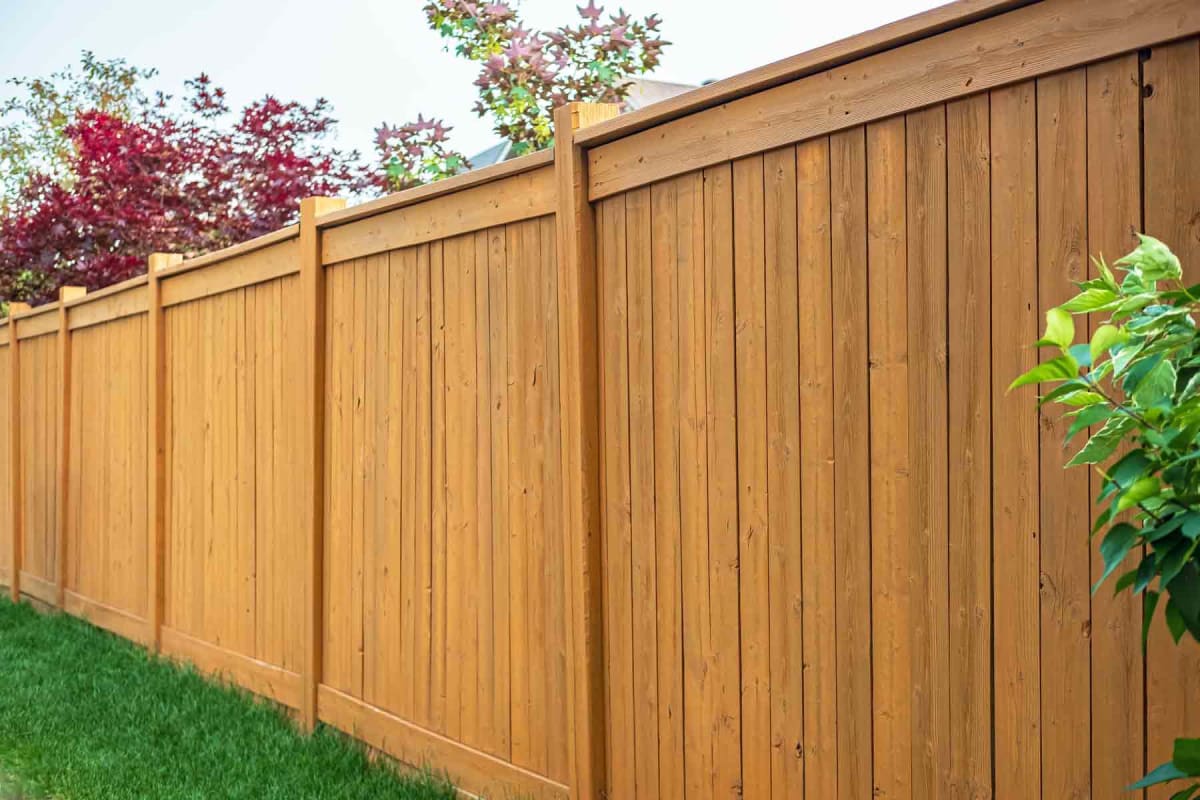All Categories
Featured
What Kinds Of Secure Fencing Products Are Available for Residential and Commercial Projects?
Fence is a sensible and functional addition to any building, supplying safety, privacy, and aesthetic allure. Selecting the appropriate material depends on the certain requirements of your business or property task. Let's check out the most prominent fence products and what makes each ideal for different applications.- Timber Secure fencing. A perennial favorite, timber fence supplies a all-natural and ageless appearance that suits numerous home types.
Benefits:
Versatility: Readily available in layouts like privacy, split-rail, and picket fencings. Adjustable: Can be tarnished or repainted to match your style. Cost effective: An affordable option for many home owners. Limitations: Normal upkeep is required to safeguard versus rot, warping, and bugs.
- Plastic Secure fencing. Vinyl has come to be a best alternative for those that desire low-maintenance, resilient secure fencing.
Benefits:

Weather Resistant: Takes care of severe temperature levels and moisture without deteriorating. Low Upkeep: No demand for paint or staining; occasional cleansing is sufficient. Wide Range: Is available in various colors and appearances, consisting of wood-like coatings. Drawbacks: The in advance expense is greater, yet long-term savings on maintenance can offset this.
- Chain-Link Fencing. Practical and cost-effective, chain-link fencing is ideal for safeguarding huge locations like commercial sites or playgrounds.
Benefits:
Cost: Among the least pricey fence choices. Toughness: Resistant to weather and physical damages. Adjustable: Can include privacy slats or layers for a refined look. Factors to consider: Deals minimal personal privacy unless supplemented with extra functions.
- Light weight aluminum Fencing. Understood for its sleek and contemporary appearance, aluminum is a preferred option for property and business properties.
Secret Features:
Rust-Free: An excellent option for damp atmospheres. Lightweight: Easier to set up contrasted to steel or iron. Decorative: Usually used to duplicate the appearance of functioned iron. Limitations: Not as solid as steel, making it less ideal for high-security demands.
- Wrought Iron Fence. Wrought iron integrates sophistication with toughness, making it a premium choice for high end buildings.

Advantages:
Customizable Styles: Includes a sophisticated, unique touch to any type of property. Outstanding Longevity: Stands the examination of time with appropriate upkeep. Safety: Difficult to damage or breach. Challenges: High expense and the requirement for normal upkeep to prevent corrosion.
- Compound Fence. Composite fencing, made from a mix of timber fibers and plastic, is an environmentally friendly option with the look of all-natural timber.
Advantages:
Eco-Friendly: Commonly made from recycled materials. Resilience: Immune to weather, rot, and bug damage. Reduced Maintenance: Requires little maintenance contrasted to typical timber. Drawbacks: Greater first prices contrasted to basic timber fencing.
- Steel Fencing. Steel fence is a robust solution for residential or commercial properties calling for maximum safety and security.
Attributes:

Durable: Withstands substantial physical and environmental anxiety. Customizable Coatings: Powder finish enhances its resistance to rust. Security-Focused: Perfect for commercial or risky locations. Factors to consider: Much heavier and more expensive than light weight aluminum.
- Bamboo Fencing. For eco-conscious jobs, bamboo uses a sustainable yet elegant choice.
Advantages:
Environmentally Friendly: Bamboo regrows swiftly, making it eco-friendly. One-of-a-kind Aesthetic: Adds a natural, unique touch to your building. Economical: Frequently cheaper than hardwood options. Difficulties: Much less durable in wet climates and might call for therapies for durability.
- Stonework and Rock Fencing. For a truly long-term solution, stone or block fence provides unmatched resilience and visual allure.
Trick Includes:
Longevity: Lasts for decades with marginal maintenance. Sound Decrease: Suitable for residential or commercial properties near busy roads. Sophisticated Appearance: Develops a magnificent and extravagant look. Disadvantages: High setup expenses and minimal adaptability for adjustments.
Selecting the Right Fencing Material. When choosing fencing for your residential or commercial property, take into consideration the following variables:
Purpose: Determine whether you focus on privacy, safety, or visual appeals. Spending plan: Some materials, like timber and chain-link, are extra affordable, while others, like rock or functioned iron, need a larger financial investment. Upkeep Demands: Materials like plastic and aluminum are low-maintenance, while timber and iron call for even more care. Local Environment: Pick a material that endures your area's climate problems. Conclusion. From the rustic charm of wood to the modern sophistication of light weight aluminum, there's a fence material for every residential or industrial project. Each choice provides unique benefits, so comprehending your property's particular needs will help direct your decision. Get in touch with an expert fencing service provider to check out layouts, products, and installment options to bring your vision to life.
Latest Posts
The Benefits of Consistent Vehicle Maintenance at Montclare Auto Repair Keeps Your Wallet Happy
Published May 22, 25
1 min read
Explore Trusted Auto Repair exclusively at Car-X – Get Back on the Road
Published May 21, 25
1 min read
Unlock WyHy Federal Credit Union – Financial Freedom for Your Goals
Published May 20, 25
1 min read
More
Latest Posts
The Benefits of Consistent Vehicle Maintenance at Montclare Auto Repair Keeps Your Wallet Happy
Published May 22, 25
1 min read
Explore Trusted Auto Repair exclusively at Car-X – Get Back on the Road
Published May 21, 25
1 min read
Unlock WyHy Federal Credit Union – Financial Freedom for Your Goals
Published May 20, 25
1 min read